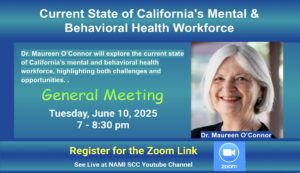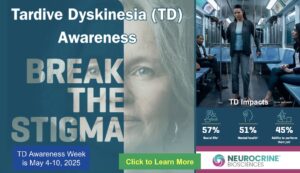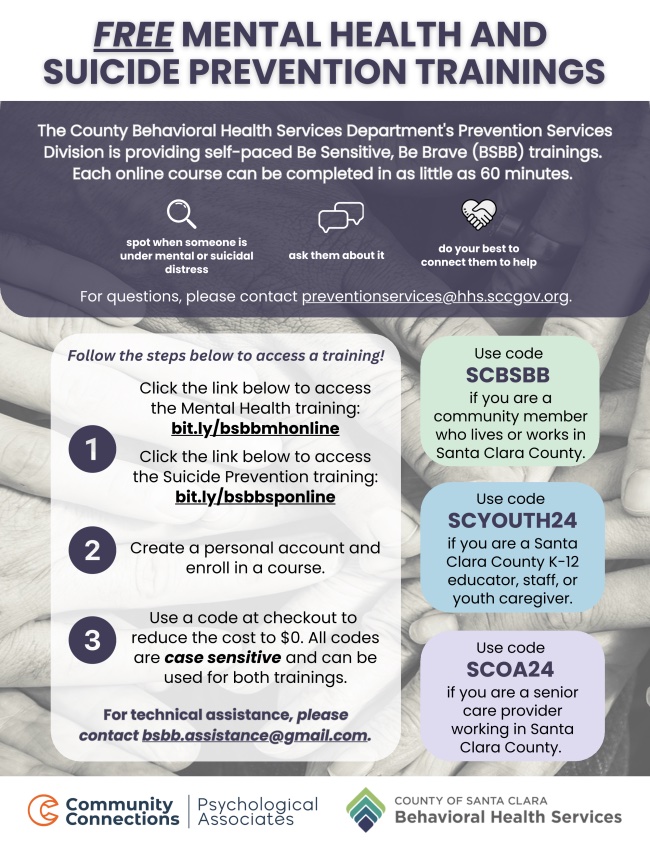
We are looking for Family support group facilitators:
We’re looking for individuals to serve as facilitators for our Family Support Groups both in-person & online.
If you’ve completed one of our family education programs and are interested in giving back by supporting others, we’d love to hear from you!
If you are interested or would like to learn more, please contact our
Education Manager:
Adela Arce
Email: aarce@namisantaclara.org
Upcoming June 10 General Meeting
When: Tuesday, June 10, 2025
Time: 7:00 to 8:30 PM
Upcoming Mental Health 101

VIRTUAL PRESENTATIONS
Dates:
- Thursday August 21
- Thursday November 20
Time: 11: 30 AM – 1: 00 PM
Life-Income Gifts
If you want to support NAMI-SCC and create lifetime income for yourself and/or someone else, consider a charitable gift annuity, For information. go to What is a Charitable Gift Annuity? | Fidelity Charitable
Research Studies
Sensing Schizophrenia Research Study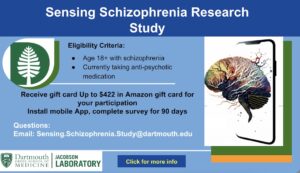 Click to learn & join
Click to learn & join
June 2025
NAMI-SCC Annual Picnic is HERE!
Date – Saturday, JUNE 7, 2025

Join us at NAMI-Santa Clara County’s Annual Picnic. This year, we’re celebrating at a new location!
Date: Saturday, June 7
Location: Emma Prusch Farm Park, 647 S. King Rd San Jose
(inside the Ethel and William Prusch Multicultural Center)
Join us as we continue the celebration of our 50th Anniversary with a day full of fun, food, and community. It’s the perfect opportunity to connect with fellow supporters and enjoy the outdoors. This event is free of cost to everyone, however, RSVP is requested to ensure you’re on the guest list. The deadline for registration is May 31. Please review your confirmation email for parking and location details.
Learn more about the event here.
We look forward to celebrating with you!
Upcoming June 10 General Meeting
Dr. Maureen O’Connor
Current State of California’s Mental and Behavioral Health Workforce
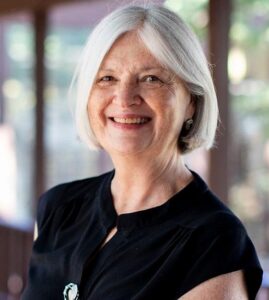
Dr. Maureen O’Connor will explore the current state of California’s mental and behavioral health workforce, highlighting both challenges and opportunities. Her talk will focus on the distinct roles and scopes of practice of the five major licensed providers in California: psychiatrists, psychologists, marriage and family therapists (MFTs), licensed professional clinical counselors (LPCCs), and licensed clinical social workers (LCSWs). By understanding the unique contributions of each discipline, and how they can collaborate more effectively, Dr. O’Connor will offer insight into how an integrated approach can help address the state’s pressing mental health workforce crisis.
When: Tuesday, June 10, 2025
Time: 7:00 to 8:30 PM
Changes to NAMI-Santa Clara County Bylaws
We have made some changes to our Bylaws to reflect how we would like to conduct our Board Officer elections going forward. (See 5.5 below.) The other change (9.3.1) reflects that we now have General Meetings five times per year (February, April, June, September, November) rather than nine. Our Board of Directors approved the changes and NAMI California did as well. Our Bylaws require that the membership review and approve changes. The membership vote to approve them will take place at our General Meeting on June 10. The changes to our Bylaws appear below in red. You can view the entire Bylaws document on our website here.
5.5 Election of Officers shall proceed as follows:
5.5.1 In January, the President shall appoint a nominating committee of members who will provide a slate of officer nominees. The Board shall vote on the slate at the February Board Meeting.
5.5.2 The slate of nominees, as approved by the Board, shall be announced during the February monthly meeting and nominations from the floor shall be included in the slate.Nominees must give their consent to be presented at the general meeting the General Meeting at which time voting shall be open until March 15. Voting shall be available on the NAMI-SCC website, www.namisantaclara.org through a secure portal.
5.5.3 The slate of nominees shall be published in the March Newsletter.
5.5.4 Voting shall take place at the March monthly meeting. Nominations may be taken from the floor during this meeting. If there are none or no objections, then voting can be taken for the slate of candidates as a whole.
5.5.4 Nominees shall be considered to be elected to the office if they receive a simple majority vote of members present at the meeting who voted.
5.5.5 Officers shall be installed in April at the monthly meeting General Meeting
5.5.6 Officers shall serve for a period of one calendar year, starting in April after their installation, and may be members/chairpersons of committees.
5.5.7 The Nominating Committee shall remain a standing committee for the remainder of the year.
9.3 Determination of General Meetings
9.3.1 General Meetings shall be held in each calendar month, except July, August and December, at a suitable location and time selected by the President and/or the Board on the second Tuesday of the following months: February, April, June, September, November.
NAMIWalks Silicon Valley 2025
Save the Date – Saturday, OCTOBER 4, 2025

Join us for an inspiring day of community, hope, and mental health advocacy!
Date: Saturday, October 4, 2025
Location: History Park, 635 Phelan Avenue, San Jose, CA. 95112
Mental Health Awareness Month with FaithNet
During May, Mental Health Awareness Month, conversations about well-being echoed in sanctuaries, at cultural festivals, and across community events. NAMI Santa Clara County’s FaithNet team was honored to be part of those conversations because we believe mental health belongs not only in clinical settings, but also in places of worship.
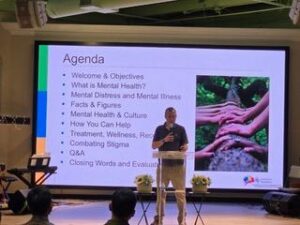 Faith institutions are often on the front lines when someone is struggling, with six in ten adults stating that their faith is a vital part of supporting their mental wellness. This is particularly true in cultural communities where stigma makes it difficult to seek care from psychiatric professionals. That’s why we work year-round to partner with churches, temples, and spiritual leaders across traditions—helping to make these spaces more informed, compassionate, and welcoming to all who live with mental health conditions.
Faith institutions are often on the front lines when someone is struggling, with six in ten adults stating that their faith is a vital part of supporting their mental wellness. This is particularly true in cultural communities where stigma makes it difficult to seek care from psychiatric professionals. That’s why we work year-round to partner with churches, temples, and spiritual leaders across traditions—helping to make these spaces more informed, compassionate, and welcoming to all who live with mental health conditions.
The FaithNet team kicked off Mental Health Awareness Month by giving a Mental Health 101 presentation at Emmanuel Presbyterian Church, a large, predominantly Korean-American congregation in San Jose. About 40 faith community members heard personal testimony, learned about mental health and stigma, and ate lunch in community with the FaithNet team.
FaithNet was also honored to be invited for the first time to the Ao Dai Festival in San Jose, a festival celebrating Vietnamese culture and tradition that attracts thousands annually. The team set up a vibrant pink table—matching the energy of the festival—and shared culturally relevant mental health resources with attendees.
Overall, the FaithNet team reached several hundred people during Mental Health Awareness Month, across three Mental Health 101 presentations and three community resource table events. The impact of the team’s efforts is clear: after attending a Mental Health 101 presentation, 70 percent of people reported an increased understanding of how to offer support to someone experiencing symptoms of mental illness, and nearly 90 percent of attendees reported an increased understanding available resources in Santa Clara County to assist people experiencing mental illness.
 People within faith communities reported feeling a strong sense of solidarity and visibility arising from the efforts of the FaithNet team: “I attended this presentation because I myself live with bipolar disorder. The first presenter talked about her diagnosis to which I could so relate which was so comforting…It takes a lot for me to go anywhere on the weekends but this motivated me to attend in person.” (NAMI FaithNet Survey, 2025)
People within faith communities reported feeling a strong sense of solidarity and visibility arising from the efforts of the FaithNet team: “I attended this presentation because I myself live with bipolar disorder. The first presenter talked about her diagnosis to which I could so relate which was so comforting…It takes a lot for me to go anywhere on the weekends but this motivated me to attend in person.” (NAMI FaithNet Survey, 2025)
Regardless of what faith background we come from, we are universally called to be present for those experiencing mental health struggles. Galatians 6:2 tells us to “carry each other’s burdens,” while the Jewish concept of Nosei B’ol Im Chaveiro is a call to radical empathy, inviting us to feel our friends’ burdens as if they were our own.
It is a sacred duty to walk alongside one another through life’s ups and downs, and the FaithNet team can help provide your faith community with vital tools to do so with compassion and understanding. Whether through presentations, tabling events, or collaborative partnerships, we equip faith communities to fight stigma and respond to mental health challenges with both heart and skill—ensuring no one feels alone in their struggle. As we look ahead to summer and beyond, the team remains committed to serving faith communities across Santa Clara County.
If you are a member of a faith community and are interested in learning more about NAMI’s FaithNet program, check our website at NAMI-SCC Faithnet or reach out to us at faithnet@namisantaclara.org
NAMI National Convention (NAMICon)
![]()
This year, NAMICon will take place from June 11-13, with Alliance Day on June 10. NAMICon will take place virtually so more people can join and more voices are heard with fewer barriers to access. It’s a chance to connect, inspire, and drive meaningful change.
Regardless of where you are on your path to mental wellness, NAMICon is where passion meets purpose and your voice matters.

Featured: Dr. Xavier Amador
I’m Not Sick I Don’t Need Help: How to Help Someone Accept Treatment
Registration Deadline: June 9 5PM ET
Could it Be Tardive Dyskinesia (TD)?
Tardive dyskinesia (TD) is an involuntary movement disorder that is characterized by uncontrollable movements of the face, torso, limbs, and fingers or toes. TD is associated with the use of antipsychotic medication that may be necessary to treat individuals living with mental illnesses such as bipolar disorder, major depressive disorder, schizophrenia, and schizoaffective disorder. TD is estimated to affect at least 800,000 adults in the U.S. Of those living with TD, approximately 60% remain undiagnosed.
It’s important that people who have taken antipsychotic medication be monitored by healthcare providers for drug-induced movement disorders, such as TD. Routine screenings are essential for earlier detection, diagnosis, and appropriate management to help improve therapeutic outcomes.
If you have taken antipsychotic medication and are experiencing abnormal, involuntary, and repetitive movements, initiate a conversation with your healthcare provider. U.S. Food and Drug Administration-approved treatments for TD are available.
Please visit TalkAboutTD.com to learn more about TD and available resources.
Volunteer Spotlight: Jessica Hardijanto

Last year, I went through some personal struggles that left me in a dark place. In search of a warm, welcoming community, I found NAMI and joined the Peer-to-Peer class. It was an invaluable experience that helped me feel seen, supported, and empowered.
Wanting to give back to the community that helped me, I began volunteering on the Helpline. This experience has deepened my understanding of how critical accessible mental health care is. It’s been incredibly meaningful to listen, support, and share resources with others as we navigate our individual journeys.
Outside of NAMI, I work with children with learning disabilities as an educational aide and tutor—a role that constantly reminds me of the resilience and potential in everyone. In my free time, I enjoy spending time with my cat, reading, and going out with friends.
I’m grateful to be part of NAMI-SCC and proud to contribute to its mission of hope and connection.
“Money Makes the World Go Round”
By Frank Alioto
No one really seems to know where that ancient saying originated. Where and when it originated doesn’t matter much even though there is a lot of truth in the idiom.
There is certainly a lot of money in California. It surely makes the state go and grow. We recently passed Japan in the size of our economy. If we were an independent nation, California would have the globe’s fourth largest economy.
Gee, that’s great…until you take a deep breath, look at our state’s financials, and find that California’s cumulative debt, including counties, etc., is now estimated at 1.6 trillion dollars. We have been a deficit-spending state for several years.
When planning the budget for this fiscal year, the California State government forecasts a modest budget surplus for the year. In June, the forecast was revised to show that once again, the state will spend more money than it receives. The shortfall is forecast to be 12 billion dollars at the end of the fiscal year.
The continued growth of debt is obviously not good for California, or for those who suffer from mental health challenges. Most of the money for mental health comes from the state.
What does this mean for mental health care throughout the remainder of the year? It means that we need to “follow the money” and make sure there are no cuts or steps backward in mental health care for the state.
With a 12-billion-dollar budget shortfall and a less-than-friendly-to-California administration in Washington, it could get difficult.
Despite the present situation and the effects it may have on the state’s revenue intake, Governor Newsom has pledged to protect the progress he has made in mental health care.
I believe him. Improving mental health in our state has been an important part of his governorship and will be an important part of his legacy. Governor Newsom has been very good for mental health care in the past and we trust that he will live up to his promises. It’s in his hands.









